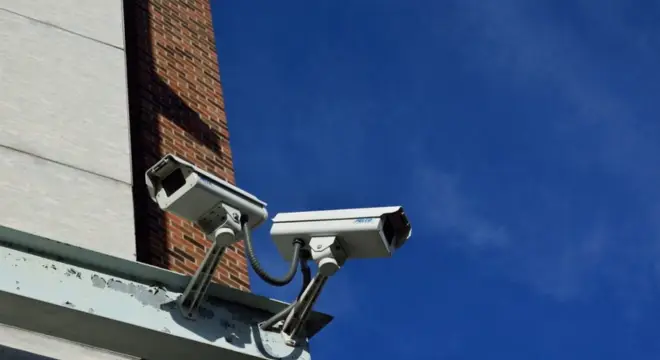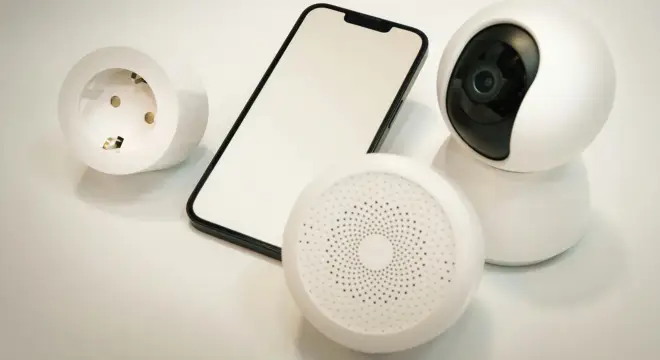5 Shocking Things That Can Happen if You Leave Your Front Door Unlocked
I’ve lost count of how many people have told me, “It’s just a quick errand, I don’t need to lock the door.” I get it—you feel safe in your own neighborhood, maybe you’ve lived there for years, and nothing bad has ever happened. But here’s the uncomfortable truth: almost half of all break-ins don’t involve a broken window or a crowbar. They happen because someone simply turned the handle of an unlocked door.
Leaving your front door open to chance isn’t just about stolen jewelry or a missing laptop. It can ripple into things you may not think about until it’s too late—like denied insurance claims, strangers walking in while your kids are home, or your personal papers ending up in the wrong hands. These aren’t just headlines or statistics; they’re real situations I’ve seen people regret after telling themselves, “It’ll be fine, it’s just for a few minutes.”
Before we dive into the specific consequences, let me ask you: when was the last time you left your front door unlocked—just because it felt safe?
Why People Often Leave Doors Unlocked?
I’ll admit it—I used to believe that if I was at home or just stepping out for a few minutes, locking the front door wasn’t really necessary. It felt harmless, especially in a neighborhood where everyone knows each other. But that’s exactly how most of us fall into the habit of leaving doors unlocked. It isn’t carelessness; it’s comfort.
Think about the reasons people often give:
- “I live in a safe neighborhood, nothing ever happens here.”
- “It’s just a quick walk around the block.”
- “It’s broad daylight—who would even try during the day?”
- “I’m inside, so why bother locking?”
The truth is, these aren’t excuses—they’re habits built on the feeling of safety. And feelings can be misleading. In a Reddit discussion on this exact topic, some people admitted they rarely lock their door because their area “feels safe,” while others said they keep it locked at all times, even when they’re home. That mix of attitudes shows just how divided we are on something as simple—and as important—as turning a key.
If you catch yourself using one of these reasons, you’re not alone. But ask yourself this: is the convenience of leaving the door unlocked really worth the risk? If you think burglars only strike when you’re away for a long trip, think again. There are actually 6 things thieves look for while you’re on holiday that can put your home at risk even when you feel secure.
Consequence 1 — Burglary & Opportunistic Theft
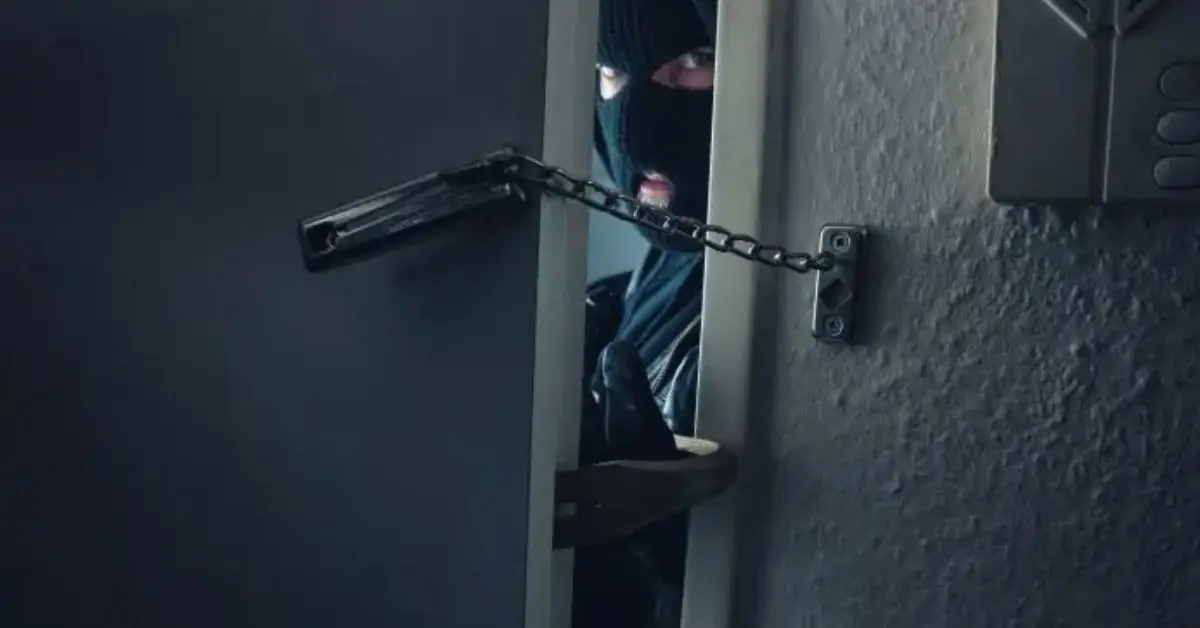
If you’ve ever thought, “It’s the middle of the day, nothing can happen,” you’re not alone. But the truth is, most burglars don’t wait for the cover of night—they look for the easiest way in, and that often means an unlocked front door. The burglary occurs in the U.S. roughly every 25 seconds, and almost one-third of intruders simply walk in through an unlocked entry.
Security experts warn these break-ins often take less than 10 minutes. In other words, by the time you’ve stepped out to run a quick errand, someone could already be inside. An open door is an opportunity—plain and simple. Burglars don’t just use the front door—sometimes they take advantage of overlooked entry points, like pet doors. Simple fixes can make a huge difference, and these 7 dog door security hacks are proof that small steps go a long way.
Consequence 2 — Personal Safety Risks (Intruders While You’re Home)
Here’s the angle most people forget: what if someone comes in while you’re inside? An unlocked door doesn’t just expose your belongings—it puts you at risk.
On community forums like Quora, people often ask, “Is it dangerous to leave your house unlocked when you’re there by yourself?” The honest answer is yes. Intruders usually assume an unlocked home is empty. If they walk in and realize someone’s there, panic takes over—and that’s when confrontations happen.
This isn’t about fear—it’s about being realistic. A thief expecting silence doesn’t know how they’ll react when they suddenly meet resistance. That moment of surprise is exactly what puts you in danger.
Consequence 3 — Impact on Insurance Claims
Here’s a consequence few people think about: insurance. If your front door is left unlocked and a break-in happens, many insurance companies may treat it as negligence. That means your claim for stolen goods—or even property damage—can be denied.
Industry surveys, like the one from Cove Security, point out that leaving your door unlocked is often seen as a failure to take “reasonable security measures.” In simple words—forgetting to lock up could cost you twice: once from the theft and again from being denied coverage.
Consequence 4 — Privacy Invasion & Identity Theft
It’s not just your TV or jewelry that’s at risk when the front door is left unlocked. Think about the documents lying around—bank statements, passports, even a laptop left charging on the table. A thief doesn’t need much to cause long-term damage. One stolen ID or a copied Social Security number can spiral into financial fraud that follows you for years.
Identity theft cases are keep climbing, and a surprising number start with something as simple as documents taken from a home. I once read about a case where burglars skipped the electronics and went straight for a folder of bank papers. The family didn’t even realize what had happened until charges appeared in their name weeks later.
The bottom line? Losing a few valuables is painful, but losing control over your identity can be devastating.
Consequence 5 — Risk to Children & Vulnerable Family Members
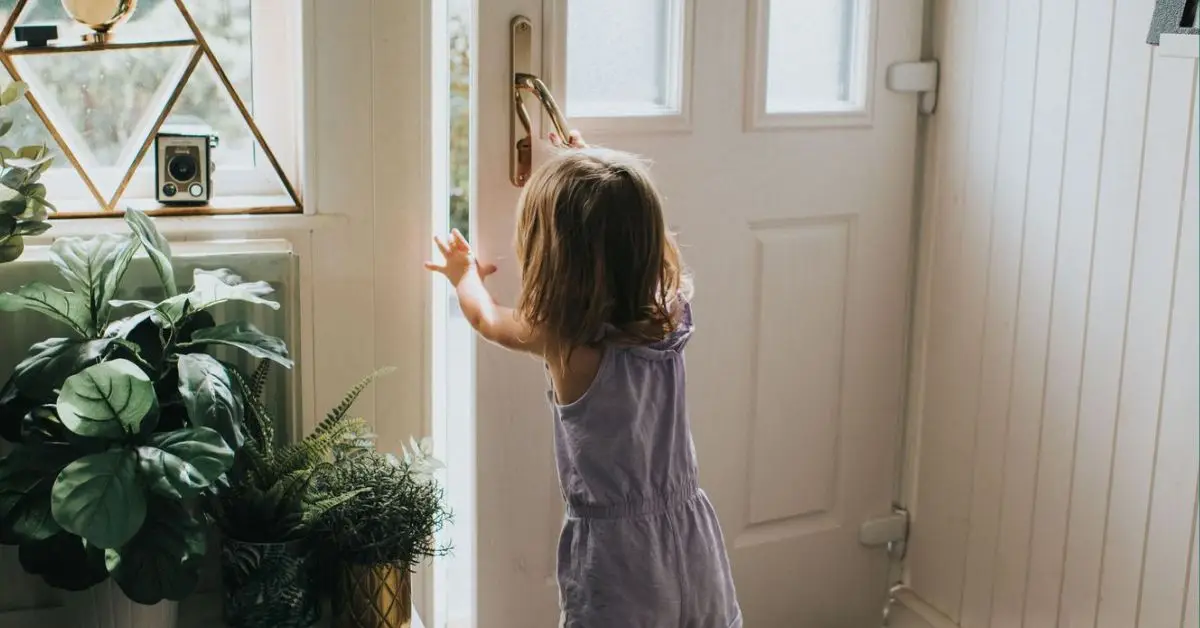
This is the part that keeps me up at night: it’s not just about things, it’s about people. An unlocked door makes your home accessible to anyone, and that means strangers could walk in while your kids, elderly parents, or even pets are inside.
I’ve heard stories where toddlers slipped out through an unlocked front door and were found wandering outside minutes later. Pets can dart into the street the same way. For older family members, the risk is the opposite—someone stepping in uninvited while they’re alone and unable to react quickly.
When you think about it that way, locking the door isn’t about paranoia. It’s about making sure the people who matter most are safe on the inside and can’t accidentally slip to the outside.
Security Tips to Prevent These Consequences
By now you’ve probably realized leaving the front door unlocked is more dangerous than it feels. But fear alone doesn’t change habits—practical solutions do. The good news is, there are simple steps you can put in place today.
- Smart locks with auto-lock features: No more wondering, “Did I lock the door?” Smart locks reduce break-in risks significantly by removing the human error of forgetting.
- Neighborhood watch apps: Tools like Nextdoor or local community apps let neighbors keep an eye out for each other. A quick post about suspicious activity can prevent more than one break-in.
- Insurance checklists: Many insurers provide a home safety checklist. Following it doesn’t just keep you secure—it also makes sure your claims won’t be denied for negligence.
These aren’t expensive overhauls—they’re small adjustments that add up to real peace of mind. Lighting can be a powerful deterrent, but not all porch lights work the way you think. In fact, some can even backfire. Here are 8 eye-opening facts about porch lights that can help you make smarter choices for your home.
The Psychology of Feeling ‘Safe’ vs. Being Safe
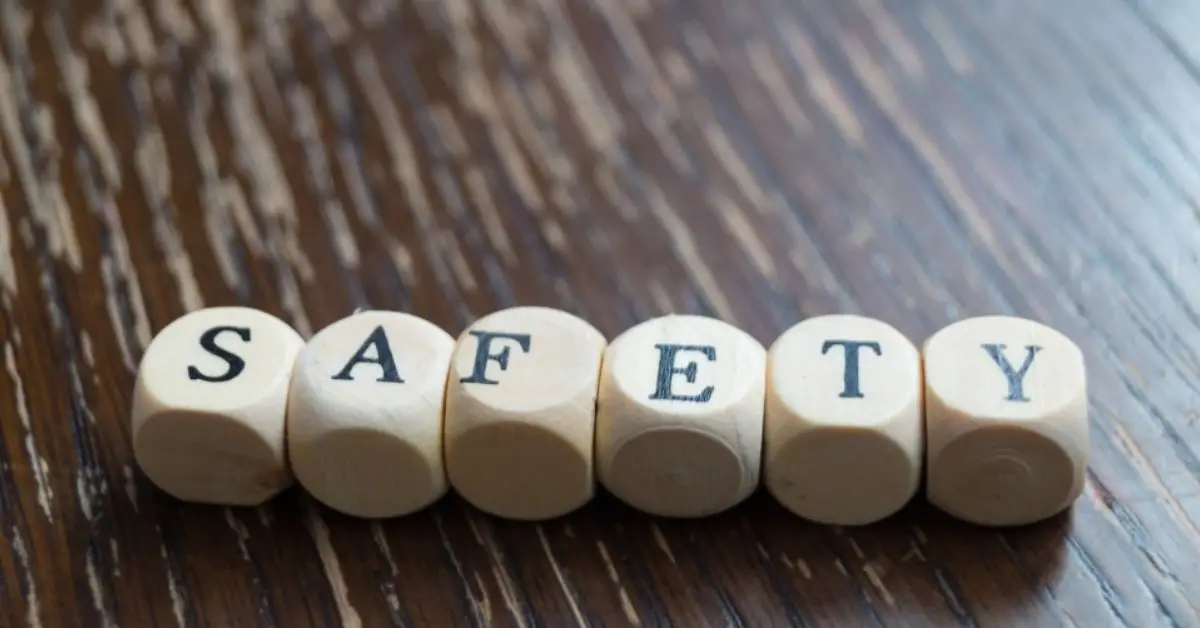
Here’s where things get tricky: our minds play games with us. You and I might look around our neighborhood, see kids riding bikes, quiet streets, and think, “Nothing bad happens here.” That feeling of safety is comforting—but it’s also misleading.
Behavioral psychology has a term for it: the illusion of safety. We assume that because something hasn’t happened before, it won’t happen in the future. But crime studies in “safe” suburbs consistently show burglaries still occur—often because people were too comfortable to lock their doors.
The problem isn’t just crime, it’s complacency. When locking the door feels unnecessary, that’s when we’re most vulnerable. Shifting from “I’ll be fine” to “It only takes two seconds to lock up” is the mindset change that makes all the difference.
Final Takeaway — Why Locking Your Door Should Be Non-Negotiable
At the end of the day, everything we’ve talked about comes down to one simple action—locking your door. It’s easy to tell yourself you live in a safe area, or that nothing’s ever happened before. But safety isn’t about what’s happened in the past; it’s about preventing what could happen next.
It takes two seconds to turn the lock. Two seconds that can protect your home from opportunistic thieves, keep your kids and pets safe inside, and make sure your insurance coverage stands strong if you ever need it. Two seconds that give you peace of mind long after you’ve stepped away.
So next time you step out—or even when you’re home—ask yourself: why take the chance?
What do you think—have you ever left your front door unlocked and regretted it? Share your experience in the comments below. For more practical home safety guides and tips, visit Build Like New.
Disclaimer: This article is for general awareness and informational purposes only. It should not be taken as professional legal, insurance, or security advice. For guidance specific to your situation, consult a qualified expert or service provider.

